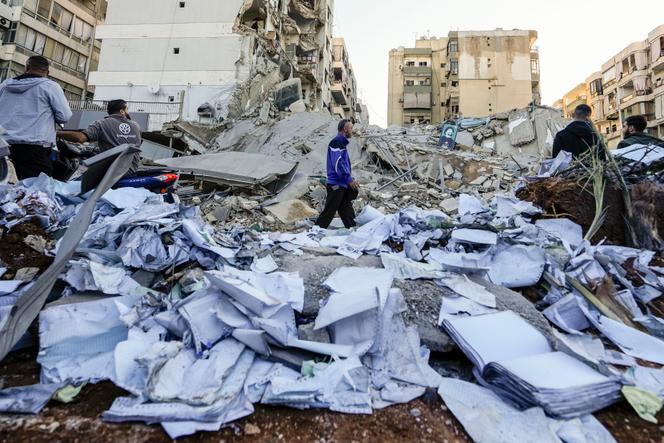


For the second consecutive night, from Monday, October 21, to Tuesday, October 22, the southern suburbs of Beirut faced heavy bombardments by the Israeli army, which left at least 13 people dead. Israel now claims to be working to dismantle Hezbollah's financial network after killing the Shiite party's main military and political leaders, including Hassan Nasrallah. With this escalation, hopes of achieving a ceasefire in Lebanon before the US presidential election on November 5 are slim.
In Beirut on Monday, US special envoy Amos Hochstein presented a new American proposal for a diplomatic solution to end the war in Lebanon. US Secretary of State Antony Blinken is expected in Israel on Tuesday as the first leg of a new Middle East tour aimed at relaunching ceasefire talks in the Gaza Strip and containing regional escalation with Iran.
On Monday night, some 15 strikes hit the southern suburbs of Beirut shortly after the Israeli army issued evacuation orders from suspected Hezbollah sites. For the first time, airstrikes targeted the popular Ouzai neighborhood, near Beirut's international airport, causing panic among residents.
An airstrike struck in the evening near the Rafic Hariri University Hospital in Beirut, the country's largest public facility, without prior evacuation orders, resulting in at least 13 deaths and 57 injuries, according to the Lebanese Ministry of Health. The Israeli army said it had struck a "Hezbollah terrorist target" near the hospital.
Earlier, the Lebanese Ministry of Health reported that six people, including a child, had been killed in Baalbek, in the east of the country, and four Hezbollah-affiliated rescue workers died in Israeli raids in the south of the country, where the Israeli army launched ground operations at the end of September. At least 1,489 people have been killed in Lebanon since the escalation of Israeli strikes a month ago.
Over 300 Hezbollah targets were targeted in the space of 24 hours, according to the Israeli army on Monday evening. According to the army, around 170 projectiles were fired by Hezbollah from Lebanon on Monday. On Tuesday morning, the Shiite movement claimed responsibility for firing at a naval base near Haifa and an intelligence base on the outskirts of Tel Aviv.
On Sunday, the Israeli army launched a series of strikes targeting Hezbollah's financial interests, bombing nearly 30 sites linked to the financial organization Al-Qard Al-Hassan ("the virtuous loan," in Arabic). Israel accused the financial institution, which is part of the network of associations, schools and hospitals set up by Hezbollah, of being involved "in financing Hezbollah's terrorist operations." The Office of the United Nations High Commissioner for Human Rights condemned the "considerable damage to civilian facilities" resulting from these bombardments, pointing out that international humanitarian law prohibits the targeting of civilians and civilian infrastructure.
You have 54.91% of this article left to read. The rest is for subscribers only.
